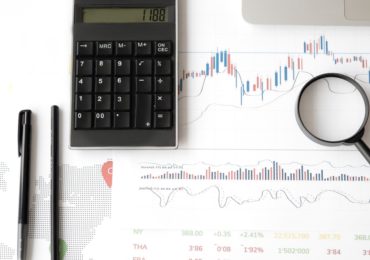
It’s early April, and earnings season is upon us. Whee! Let’s all get ready for the traditional obsession about an aluminum company’s earnings, as if it were opening day of baseball season.
There will be plenty of game announcers on the sports networks – oops, I mean the financial networks – giving color commentary on earnings season, betting on which team — I mean, sector – will be a winner!
As you can see, I’m not particularly excited or fazed by the earnings-season frenzy, or about betting on sector performance.
Any sector bet has a built-in expiration date. If you expect one area of U.S. large cap to outpace the others, the effect won’t be long lasting. There’s no shortage of historical data to prove this.
As Americans, we’ve been trained to see only the S&P 500, the DJIA and maybe a smattering of the NASDAQ Composite. U.S. stocks and bonds constitute 46% of global market cap. It’s a shame that our media doesn’t give us good information about the other 54% of the world.
One big problem: This relentless obsession with large-cap domestic stocks is harmful to your investment strategy. In addition to missing out on global stocks, they are also foregoing small cap and value stocks, which have higher historical returns than their larger brethren.
In the so-called “lost decade,” between January 2000 and December 2009, U.S. large caps showed a loss of 9.1%. To many Americans, the S&P 500 is “the market.” But if you remember to include other asset classes in your portfolio, that puts the lie to that tired old assumption.
Let’s take a little break for a pop quiz. What percentage of world market cap does China represent? I’ll just wait over here while you think about it….
Ready? I bet your first guess is something like 25%. Or maybe 15%? If you’re on to me by now, you’re downsizing your guess to 10%.
Well, the correct answer is “none of the above.” China makes up just 2% of world market cap. But most Americans would never guess that, because of the media fixation on China’s markets.
Sadly, most people who come into my office only own U.S. stocks and bonds. Often, it’s even worse: They own single stocks and bonds, rather than ETFs or low-cost mutual funds. Single stocks and bonds add more risk.
There’s endless societal approval for speculating on various asset classes. It’s reinforced by obsession on the news – such as the beginning of earnings season, or the latest blip from China. Long-term investors with globally balanced, diversified portfolios find they can withstand rocky markets and bad-news barrages without suffering another lost decade. Investors who only focus on U.S. large cap? I feel bad for them.
So back to earnings season. It can be fun to track the business news, and follow which industries are hot or not. I geek out on some of the demographic and sociological observations that can be gleaned from company performance. My father worked for Eastman Kodak for 31 years, so it’s a bit of a hobby for me to follow business trends and company disasters.
But that’s entirely different from tracking earnings season as a way of making bets for or against single stocks or sectors.







